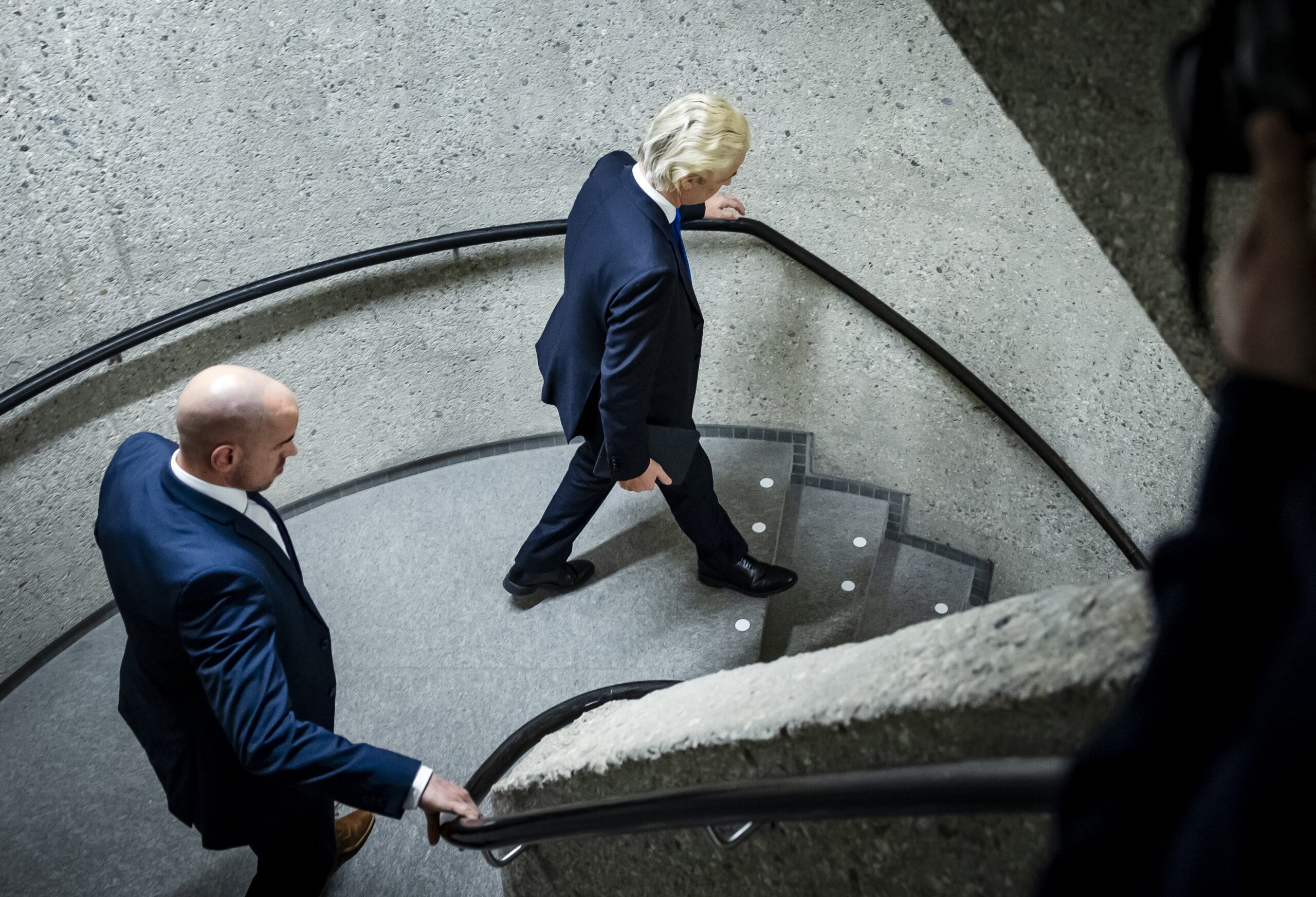Europe tilts to the right, but new cabinet must tread carefully
Gordon Darroch
As befits the finest Brussels traditions, the European Parliament elections produced a result that almost everyone could claim as a victory.
The far-right PVV, led by Geert Wilders, enjoyed the biggest rise in seats, going from one to six. But it was overhauled by the left-wing joint ticket of GroenLinks and Labour (GL-PvdA), which took eight of the 31 seats.
Wilders proclaimed himself the “biggest winner”, since GroenLinks and PvdA will share their seats across two European factions. But in an election that he pitched as a straight contest between himself and Frans Timmermans, it was a step backwards.
In percentage terms the gap was almost four points, a significant margin given that most opinion polls had the parties running neck-and-neck during the campaign.
Explainer: How the European parliament works
Explainer: Dutch political parties
Timmermans, on the other hand, was able to present the result as a win even though GL-PvdA ended up with one seat less than they managed as separate parties in 2019. He argued it sent “a clear signal to the rest of Europe that there is no necessity to work with the radical right”.
And on a generally bleak night for Green parties around Europe, GroenLinks were the main beneficiaries of the alliance, adding a seat to the three they previously held. The PvdA, by contrast, will have two fewer MEPs in the Social Democratic group.
Aftershock
Before the election commentators were predicting a seismic shift towards the far right across Europe, but the outcome was more a consolidation of the gains populist parties made in recent national elections.
With the exception of France, where Marine Le Pen’s triumph prompted Emmanuel Macron to call a snap election, it was an aftershock rather than an earthquake.
The outcome is a boost for Ursula von der Leyen’s hopes of a second term as president of the European Commission, but she will have to deal a larger and stronger group of hardline conservatives and far-right parties.
Her own centre-right family, the EPP, will have to accommodate new members such as the Dutch farmers’ party BBB, who will apply pressure from within to water down key elements of the EU’s Green Deal plan to tackle climate change.
The PVV mainly profited from the collapse of Forum voor Democratie, which won four seats during the last term but surrendered them in a series of internal splits and rows. Ironically, Forum were only still in parliament because the sole MEP for the PVV, Marcel de Graaff, jumped ship for Thierry Baudet’s weatherbeaten raft in 2022.
GL-PvdA benefited from the fact that supporters of pro-European parties were more motivated to turn out. Only 20% of people who voted for Timmermans’s alliance in November stayed home on Thursday, compared to 53% of PVV voters.
Food for thought
Altogether parties that campaigned on pro-European platforms took 21 of the 31 seats, with three for the Christian Democrats (CDA), two for Volt and one for the animal rights party PvdD. But there were also Eurosceptic gains, with two seats for the farmers’ party BBB and one for the orthodox Protestant SGP.
It should, nevertheless, give the incoming government in The Hague food for thought regarding its attitude to Brussels. The outline coalition agreement drawn up by the four right-wing parties includes a set of hard demands on immigration and agricultural policy, including an opt-out from EU migration quotas, that seem almost designed to provoke a confrontation.
But if the government damages the Netherlands’ standing in Europe or its relationship with its trading partners by being too obstinate, on this evidence it risks a backlash from voters.
Altogether the four coalition parties scored less than 40% of the vote, though that mainly reflects the way voters have deserted Pieter Omtzigt’s NSC party since November. NSC scraped a single seat with 3.8% of the vote, having polled 12.9% at the general election, while Omtzigt’s former colleagues in the CDA recovered from 3.3% to 9.7%.
Centrist coalition
Dutch parties could have 17 MEPs across the three largest European families, including the four PvdA members in the social democratic faction. The BBB and NSC are almost certain to join the CDA in the EPP, raising its Dutch contingent from four to six.
The two liberal parties, VVD and D66, took four and three seats respectively, but the VVD’s membership of the liberal Renew faction is hanging by a thread now that they are forming a right-wing government with the PVV in The Hague.
Renew’s leader, Valérie Hayer, has made it clear she wants the VVD to be expelled from the group for crossing a “red line” set down in its Vienna Declaration, which explicitly ruled out power sharing with far-right parties.
If VVD are shoved out, it could open the door for Volt to join Renew. The pan-European party are currently leaning towards the Greens, partly because of their reservations about sitting with the VVD, but the final decision will be made by their members, whose political outlook is arguably closer to D66.
All three candidates interviewed by Dutch News ahead of the election will be taking a seat in Brussels. Check out their thoughts:
- Bas Eickhout, number one on the GroenLinks-PvdA list: “A stagnant Europe is an advantage for Putin and Trump”
- Raquel García Hermida-van der Walle, number two on the D66 list: “Spanish by birth, Dutch by choice, and European by conviction”
- Jessika van Leeuwen, number two on the BBB list: BBB wants to have a strong lobby in Brussels
Thank you for donating to DutchNews.nl.
We could not provide the Dutch News service, and keep it free of charge, without the generous support of our readers. Your donations allow us to report on issues you tell us matter, and provide you with a summary of the most important Dutch news each day.
Make a donation